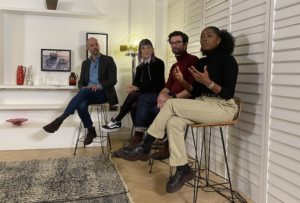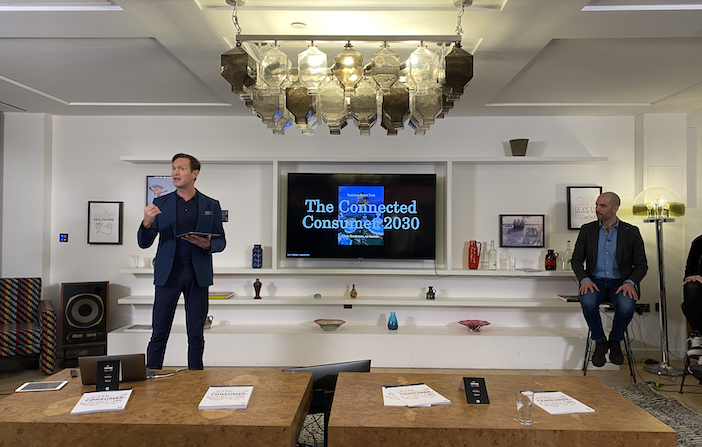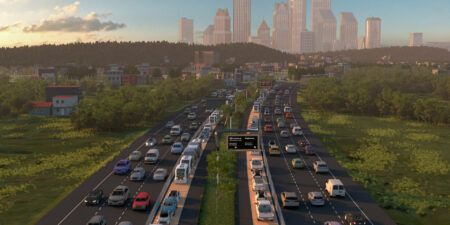Connectivity and smart technology via rapid 5G will fundamentally transform our experience of the world – including urban transportation – within the next decade, according to a new report launched today by Vodafone. The Connected Consumer 2030 Report (CC2030) explores key trends that will drive the future of connectivity, challenging head-on the impact of climate change and depleting natural resources.
The report, released in partnership with The Future Laboratory, predicts how innovation in smart cities and transport will help solve once-in-a-generation challenges and improve everyday life by optimising journey times, improving safety and reducing emissions.
“With the rise of 5G and connectivity becoming faster than ever we’ll see the talk about smart cities and transport turn into a reality in the next decade,” said Pamela Brown, Vodafone Smart Tech’s chief marketing officer. “This opens up a whole host of opportunities for tech companies to help improve everyday life and transform how we move around.”
Research by McKinsey predicts that by 2025 cities that deploy smart mobility applications could cut commuting times by 15-20% on average. But the benefits go well beyond convenience.
“Cities that embrace smart, autonomous mobility systems will be greener, quieter, more sustainable and more liveable,” says Brown.
 Above: panellists including Valentina Contini, founder of the Innovation Lab at Porsche Engineering (second left – see below) discuss how 5G will optimise the urban experience for drivers
Above: panellists including Valentina Contini, founder of the Innovation Lab at Porsche Engineering (second left – see below) discuss how 5G will optimise the urban experience for drivers
Pay-by-car
By the end of the decade, new mobility systems will see vehicles become hubs of experience, enabling the creation of new consumer touchpoints, including self-driving retail concepts.
“Tech companies need to understand that the car is going to be a highly connected space, offering incredible opportunities for entertainment, commerce, or even a place to switch off and slow down,” says Vinod Kumar, CEO of Vodafone Business.
Using immersive holograms, the report suggests, e-commerce brands will be able to showcase their latest collections to passengers of autonomous vehicles as they travel, allowing them to swipe through products and even be dropped off at a retail destination to make a purchase. On entering a vehicle, passengers will be able to control their journey through their personal devices, pre-selecting from a series of settings ranging from sightseeing to work and leisure to create a completely tailored passenger experience.
Crucial collaboration
To enable smart mobility systems to thrive, mobility players, tech businesses and governments must work together to define how data is shared with cities. As the urban transport system continues to incorporate more digitally enabled ways of moving around – from drones and shared scooters to autonomous vehicles – cities need new ways to ensure everyone’s transport needs are met in a safe, efficient and environmentally sustainable way.
“Attitudes to sharing data are very subjective and vary from region to region,” says Valentina Contini, founder of the Innovation Lab at Porsche and a key panellist at the event. “Making people aware of the benefits on offer can help overcome this barrier across geographies and democracies.”





